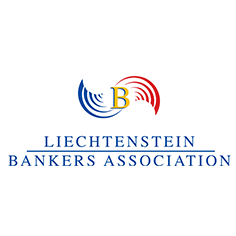Who rests, rusts
Liechtenstein banks aspire to play a creative role in developing a more sustainable global economy and inclusive society. The theme of our Roadmap 2025 is growth through innovation and sustainability
Financing — Europe, Global

Without the past, there is no future. Tradition is important – especially for banks like ours, given that they pursue a long-term, cross-generational approach in all their thought and action. But we cannot rest on the laurels of our past. In other words: tradition must not mean that we unconditionally stick to what we’ve always done, without constantly questioning ourselves and our surroundings. We need a good mix between the proven and the new – between tradition and innovation.
This is why, together with our member banks, we have developed our new multi-year strategy, Roadmap 2025. Its leitmotif is “Growth through innovation and sustainability,” deliberately placing an even greater emphasis on sustainability than we already have in the past. The goal is for the banking center to play a crucial and creative role shaping the so urgently needed transformation of the global economy and society towards greater sustainability, and to achieve a real impact with our products and services for the benefit of our clients and future generations.
We strive for a comprehensive approach to sustainability, whereby the 17 Sustainable Development Goals not only serve as guiding principles, there is a strong business imperative to deliver them.
The 2017 Better Business, Better World report revealed that pursuing sustainable and inclusive business models could unlock economic opportunities worth at least USD12 trillion a year by 2030 and generate up to 380 million jobs, mostly in developing countries. Hence, we do this knowing that our clients expect more than simply high-quality services.
Our clients also want financial institutions to contribute to solving the environmental and social challenges of our time. Are we on the right track? Yes, we think so, but we are aware that much remains to be done and we need to speed up all our efforts. And again speaking for Liechtenstein banks, especially in our core business – investment advice and asset management – our range of products and services must be swiftly further expanded.
The coronavirus pandemic has caused us all – including investors – to reflect more deeply about the future. The focus has shifted dramatically towards health and security, and sensitivity about one’s own financial security in the future has noticeably increased. The slowing down of our everyday lives has led to a speeding up of sustainable investments. A change in thinking can be seen in society, politics, and business.
Energy companies are looking for new, sustainable business models, and even traditional car producers are converting their entire fleet to e-mobility, to name just two examples.
In addition to sustainability, we must also incorporate the opportunities and risks of digitalization in a meaningful way. COVID-19 has shown us this impressively as well. In particular the way we work, and above all where we work, changed significantly during the coronavirus pandemic.
Up to 90% of the employees of our financial institutions had to work from home and in some cases still do. The coronavirus dramatically accelerated the already existing trend towards more compatibility of family and career of all our workforce. What was unthinkable just a few months ago has suddenly become reality and will certainly become an integral part of our everyday life in the future. In the medium to long term, hybrid forms of working, or the ‘flexible office’, are likely to dominate after the coronavirus.
Three key questions
In any event, three questions relating to this new world of work will occupy us in the banking sector for quite some time. Firstly, what impact will these developments have on corporate culture? Since management guru Peter Drucker, we know that culture eats strategy for breakfast. This spirit is strongly influenced by interaction among employees. Atmosphere, personal exchanges, and joint activities help shape identity. In the ‘flexible office,’ where everyone is hardly ever on site at the same time, these drivers are missing. As a consequence, culture must be rethought and put into practice differently.
Secondly, personalized services and support for our clients continue to be of vital importance, especially in the core business of our member banks, asset management.
Only the future will tell to what extent this will still go hand in hand with interactions in person and on site. Clearly, younger generations are more mobile, digitally savvy, and used to virtual interactions. At the same time, they expect more than merely customer care; they desire customer experiences.
For the service industry in general and banks in particular, the challenge will be to remain relevant to tomorrow’s customers and to create traceable and measurable added value in a digital world.
And last but not least, the ‘war for talent’ is likely to intensify. Qualified personnel will continue to be scarce, especially for a small country like Liechtenstein, which is dependent on workers from abroad. Companies will be challenged to offer employees tailored working models that are optimized to their work and objectives and that both create attractive jobs and ensure business success.
Fit for the future
Having said that, building back better and playing an active role in this will demand a lot from banks and the financial industry, but it also brings enormous potential opportunities for those who are willing to assume their responsibility for a modern society, for the implementation of the SDGs and to net zero. Or as Woodrow Wilson rightly said: “Responsibility is proportionate to opportunity.”
We still face the greatest challenge, namely to make the technological change usable for our transformation into a more sustainable economy. Digitalization and sustainable development go hand in hand. However, time is running out and the house is burning, quick action and leadership is needed to unlock the trillions necessary for a sustainable future.
In Roadmap 2025, we have addressed these and other questions relating to a new economic and working environment, and defined concerns and measures to become fit for the future in this area as well.
About Liechtenstein Bankers Association

Established in 1969, the Liechtenstein Bankers Association is the domestic and international voice of the banks operating in and out of Liechtenstein.
It is one of the country’s most significant associations and plays a key role in the successful development of the financial center. Member interests are pursued in accordance with the principles of sustainability and credibility.
As a member of the European Banking Federation (EBF), the European Payments Council (EPC) and the European Parliamentary Financial Services Forum (EPFSF), the Liechtenstein Bankers Association is a member of key committees at the European level and plays an active role in the European legislation process.
Since 2017, the LBA has also been a member of the Public Affairs Council (PAC) with offices in Washington and Brussels, and since 2018 of the international network ‘Financial Centres for Sustainability’ (FC4S).





